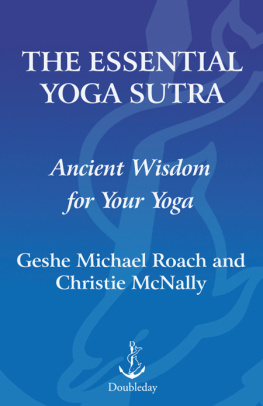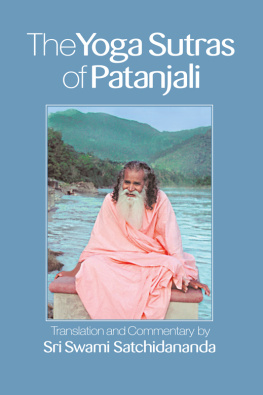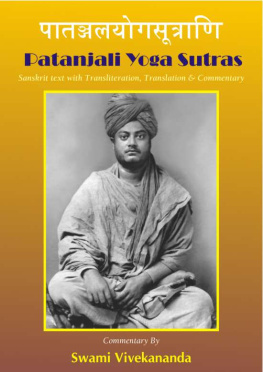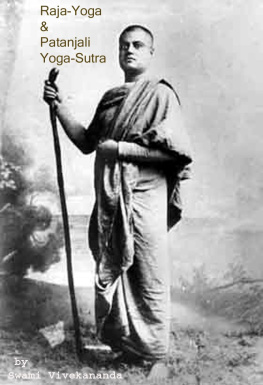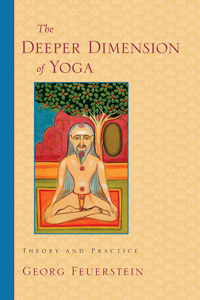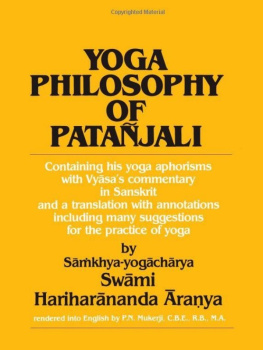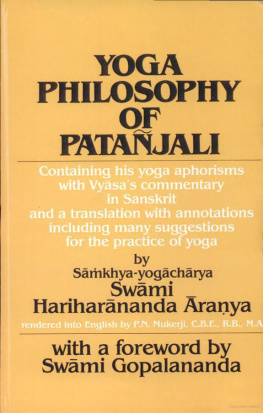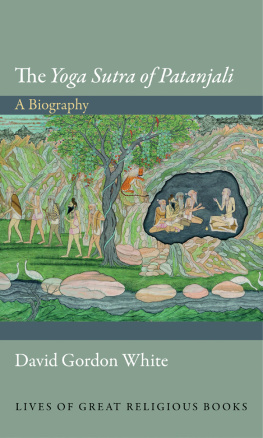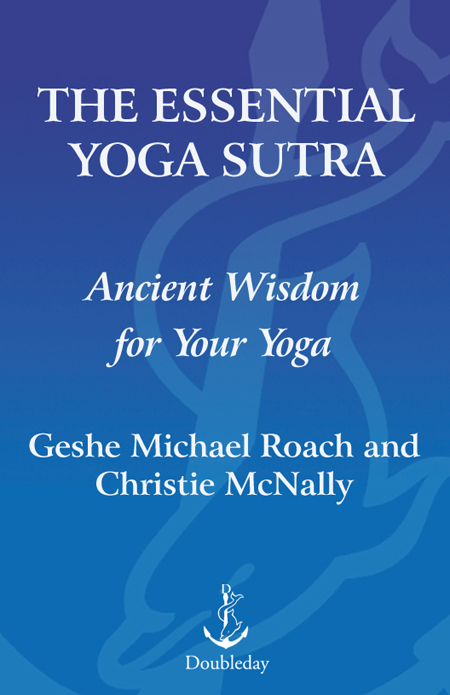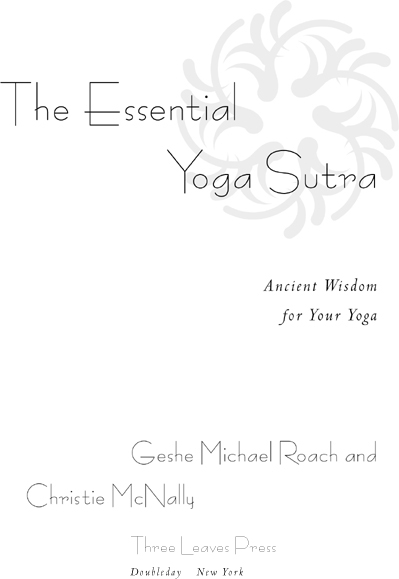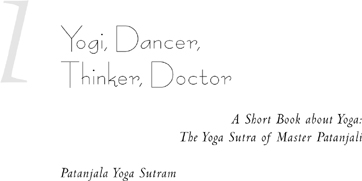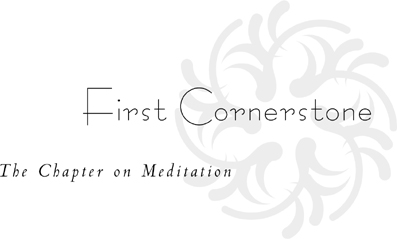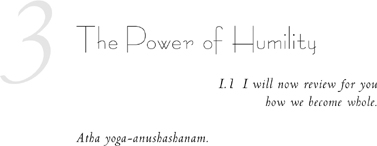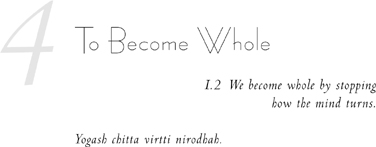We encourage readers to study the Index of Important Ideas at the end of this book, so that you know immediately where to look for help on any personal needs or interests you may have.
To help those who might want to chant the Yoga Sutra in its original language, we have included the Sanskrit here in the closest English pronunciation possible without special marks or spellings not found in normal English. Please note that the combination a-a should be read as one long ah sound. Divisions like this are made wherever two words are joined, but only if it would not change the pronunciation or meter in chanting.
The authors would like to acknowledge the kind assistance of the Asian Classics Input Project and its director, John Brady, for access to its database of several thousand ancient Asian manuscripts for completing this translation of the Yoga Sutra.
We would also like to thank Dr. M. A. Jayashree and Dr. M. A. Narasimhan, of the University of Mysore and University of Bangalore, India, for sharing with us their research on alternate readings from early handwritten and palm-leaf manuscripts of the Yoga Sutra. Ven. Brian K. Smith, PhD, a professor who teaches these materials at the University of California, Riverside; Loyola Marymount University; and Diamond Mountain University, carefully collated for us the variations of the Sanskrit text.
Finally, we would like to express infinite thanks to our many teachers from India, Tibet, and the West, who have spent thousands of hours patiently passing these teachings on to us.
A sutra is a short book that tells us the very crux of something ideas tied tight together, with a stitch of thread. The Yoga Sutra is the mother book of all yoga. It was written about two thousand years ago by Master Patanjali.
Master Patanjali was a great yogi; he knew the physical poses of yoga and the art of breathing: yoga of the body. He was also a great thinker and meditatora master of the yoga of the mind. He wrote as well famous books on medicine and on Sanskrit, the ancient tongue from which almost all our languages come. He is recognized too as the father of the classical dance of India.
Dancer, doctor, yogi, thinker, master of ancient words. What do they all have in common?
Yoga, as we shall see, has many meanings. One is the union of the winds within our inner body. We unite these winds with our yoga, when we think and understand. The winds will sing within us, the very first words of all. They will flow free, and force us to dance, and to run to heal others.
The Yoga Sutra has four chapters: four cornerstones upon which it stands, like a table on four legs.
The first chapter describes five crucial steps that we all pass through during our spiritual journey. This journey always begins from pain: we see death, we see people suffer, we dream of saving them. And the journey ends when we change, finally, into a sacred being who actually has the power to save them.
In between its beginning and its end, the road we travel has five parts: five paths, each one leading into the next, each one marked by its own special milestones. Stepping up to each new path from the one before it can only be done in one way. We must be in deep meditation; we must learn to meditate.
Thus it is that the first chapter, the chapter on the five paths, is called the Chapter on Meditation.
Another meaning of yoga is to become whole. Ultimately we only become whole when we are truly capable of helping others with the things that really matter: when we can help them understand how they came into this world, and what life is for, and whether it has to end with losing everything.
This then, says Master Patanjali, is why I write my short book. He wants us to know, from the very beginning, that his book contains something of ultimate importance, something worth the precious hours of our life.
And I will only review, says the Master, what I have heard from my holy teachers. He attacks his own pride: I have nothing new to tell you, and there is nothing here that I have made up myself. I am only a vessel for the wisdom of the ages, and I pass it on to youtried, tested, and unadulterated.
And he says I will write this book, for once a Master promises to do something, he does itor dies trying.
All the great books of India begin with these three noble themes. Their power, their karma, stops all obstacles to the work we now begin.
These are perhaps the most important words of the entire Yoga Sutra. Here the Master tells us another meaning of yoga, which is learning to stop the Great Mistake.
And what is the Great Mistake? Our mind turns; meaning it turns things around the wrong way. A mother takes her small child to a movie. On the screen, a man is hurting a puppy.
The child cries out, and reaches to stop the man. Perhaps the child can even get up to the screen, and try to hit the man.
But this doesn't stop the man; it has nothing to do with the man. And the child hurts her own hand in the process.
Our mind makes this same kind of mistake, every day, every moment of every day. We need to stop the mistake, and that is yoga. Pain is realyesand it really hurts people. But we can only stop it if we can stop misunderstanding where it comes from. And this is what the Yoga Sutra teaches us to do.

